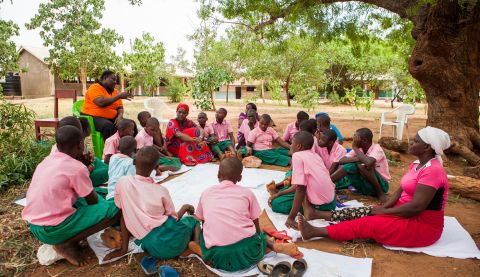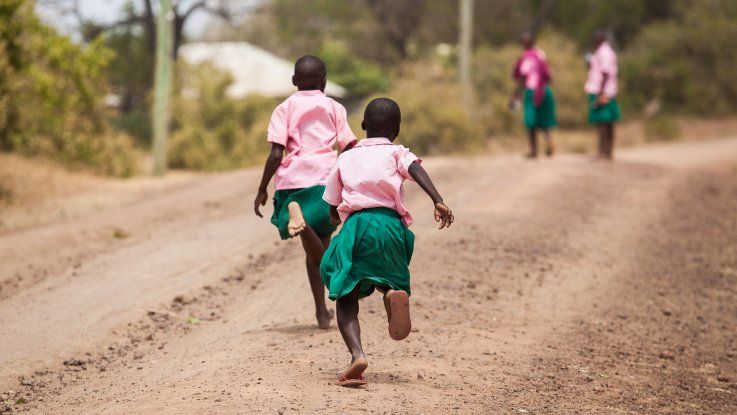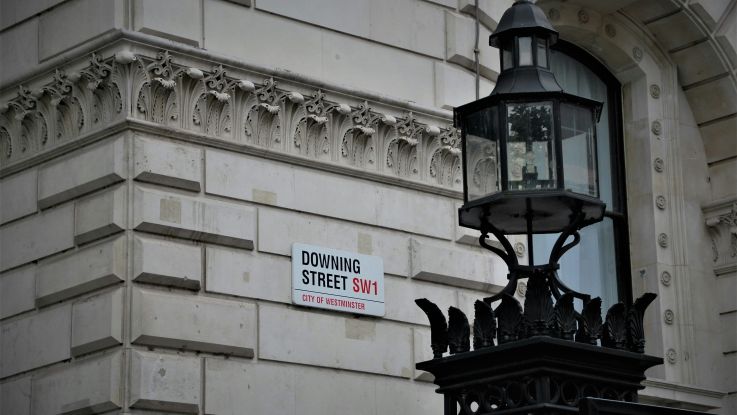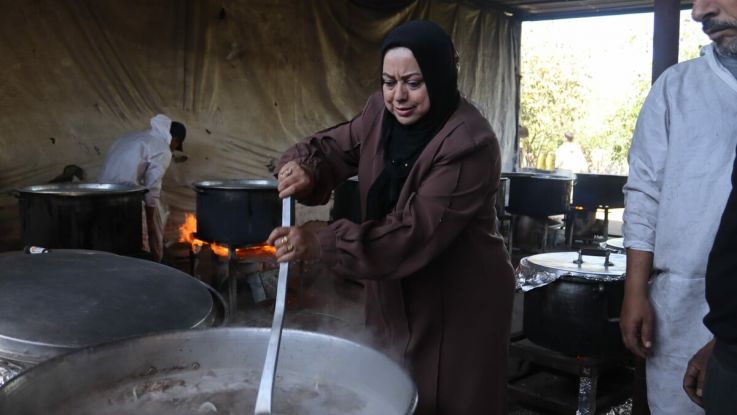Girls worry about sexual harassment ‘every day’
29 January 2019
New research by ActionAid highlights the impact of sexual harassment and misogyny on women and girls around the world, with some girls as young as 14 worrying daily about being harassed.

Girls club in Kenya. The group meets regularly to discuss gender specific challenges and learn about their rights . Photo: Sheldon Moultrie/ActionAid
According to new research by ActionAid, 65% of girls around the world say they had faced some form of sexual harassment in the last six months, and many now worry about being harassed 'every day'. In the UK, more than one in ten of even the youngest girls interviewed (aged 14-16) worry about it. And in Brazil, this increases dramatically to 41%.
New findings on sexual harassment and misogyny come from a study of 2,000 young people aged 14-21, carried out by ActionAid in the UK, Kenya, India and Brazil. It aimed to find out when potential influences on this type of behaviour begin, and found that it was from an early age.
Most young people have witnessed misogyny
Almost two thirds of 14 to 16-year-old girls and boys in the UK have witnessed misogyny from those around them - from family members and friends, to strangers and teachers.
This could be made worse by the example set by high profile people in the media, like Donald Trump and presenter Piers Morgan. In total a fifth of young people surveyed (a total of 523 participants across the four countries) said they have seen, heard or read about celebrities or other well-known people behaving in this way.

ActionAid activists at the #BringTheNoise march protesting Mr Trump’s UK visit. .
Most young people see sexual harassment as unacceptable
While nine out of ten young people in the UK believe that upskirting or being forced to kiss someone is unacceptable, young men are significantly more likely to find other behaviours such as groping or sharing explicit photos online acceptable, compared to young women of the same age group.
Those that have witnessed sexual harassment think that 'wanting to impress friends' or believing 'it’s what men do’ were likely reasons for the behaviour. In Brazil, a significantly higher proportion of young people felt it was because ‘they would think the person would find it complimentary or be pleased they found them attractive’, as compared to other countries we polled.
ActionAid Chief Executive Girish Menon says: “This research shines a worrying spotlight on how many young people witness or experience sexual discrimination and harassment.
We know from experience that misogyny is not trivial. It happens because of deep-rooted beliefs that see women and girls as worth less, that their bodies exist to exploit, and control. We want all women and girls worldwide to be empowered to say ‘My Body Is Mine’ and not let anything hold them back.”
Reassuringly, confidence in reporting sexual harassment is high among this generation. In the UK two thirds (66%) of those who have been harassed in the last six months would feel comfortable telling someone, with two thirds of them already having done so. In Kenya 64% would feel comfortable telling someone, rising to 74% in Brazil and 79% in India.
Can education help put a stop to harassment and abuse?
Young people also believe that education is the answer. Overall 79% support education as the way forward, backing educating boys in schools about how to treat girls; educating girls in school about how to report harassment; educating teachers about taking accusations seriously; and educating parents.

12-year-old Joan says she is often harassed on her way to school in Nyarongi, Kenya .
12-year-old Joan attends a primary school near a sugar cane factory in Nyarongi, Kenya and every day her and her friends are sexually or verbally harassed by the local workers – many of whom offer them money or food in return for sexual favours.
"On the way to school we see boda boda (taxi bike) men and sugar cane workers. They shout things at us," Joan says.
“I encourage girls to go to school and ignore these men who shout at us,” she bravely says. "I would like to be a teacher when I grow up.” In reality, for girls like Joan sexual harassment can get in the way of a good education.
What ActionAid does to tackle misogyny
In the countries where ActionAid works, from the moment they’re born, many girls are seen and treated as less than boys. We challenge these harmful societal norms which create gender inequality and allow abuses like violence against women and girls to continue and support women and girls to get their voices heard.
We also create safe spaces like girls’ clubs within schools. Here, girls can discuss their needs and take concrete action to raise awareness of their right to an education and to tackle violence. Our local, frontline staff also make sure survivors receive the support they need and are able to access justice.
Will you join us? Find out more about what work ActionAid does - and how you can join us to help end sexual harassment and abuse around the world.



